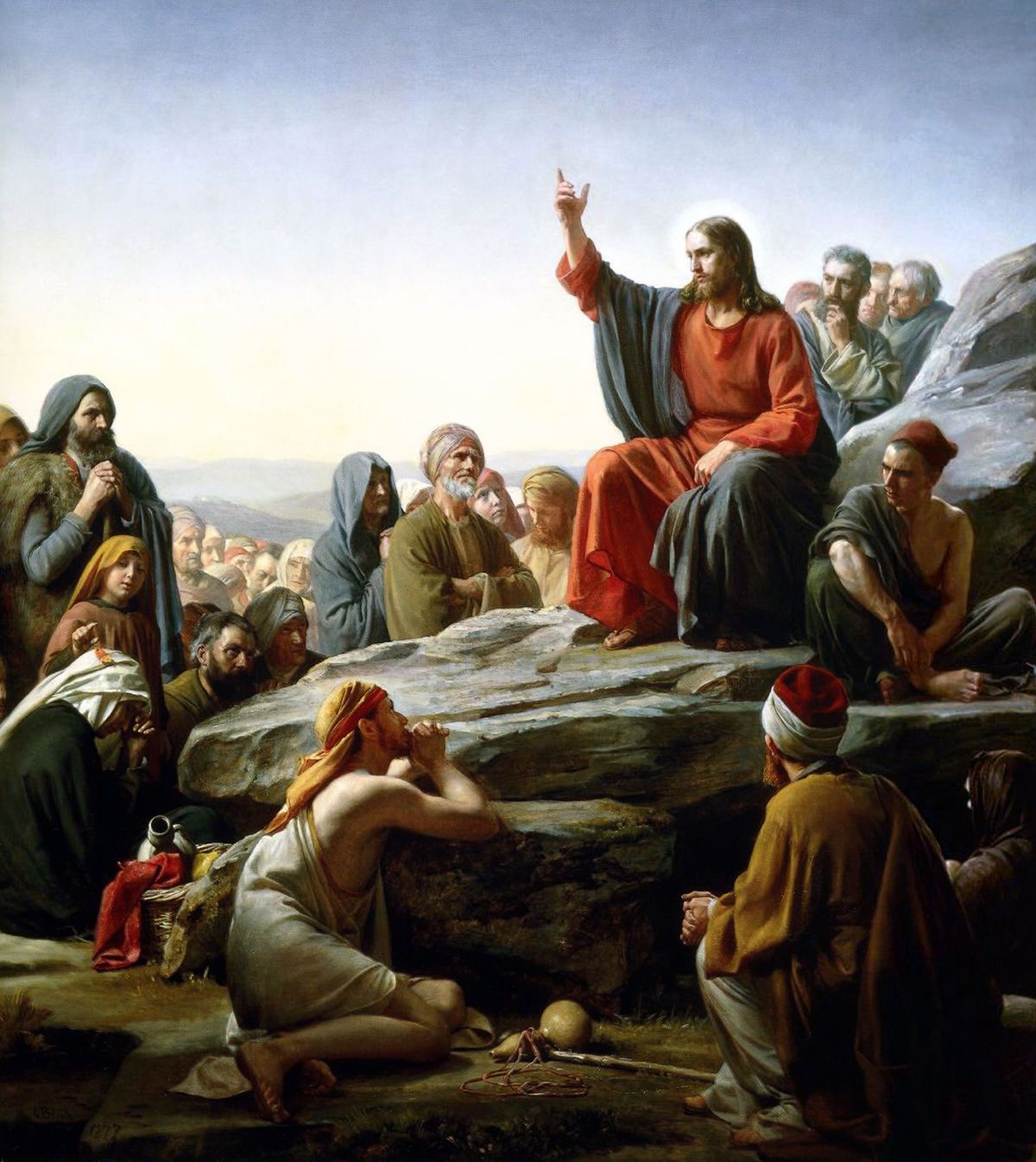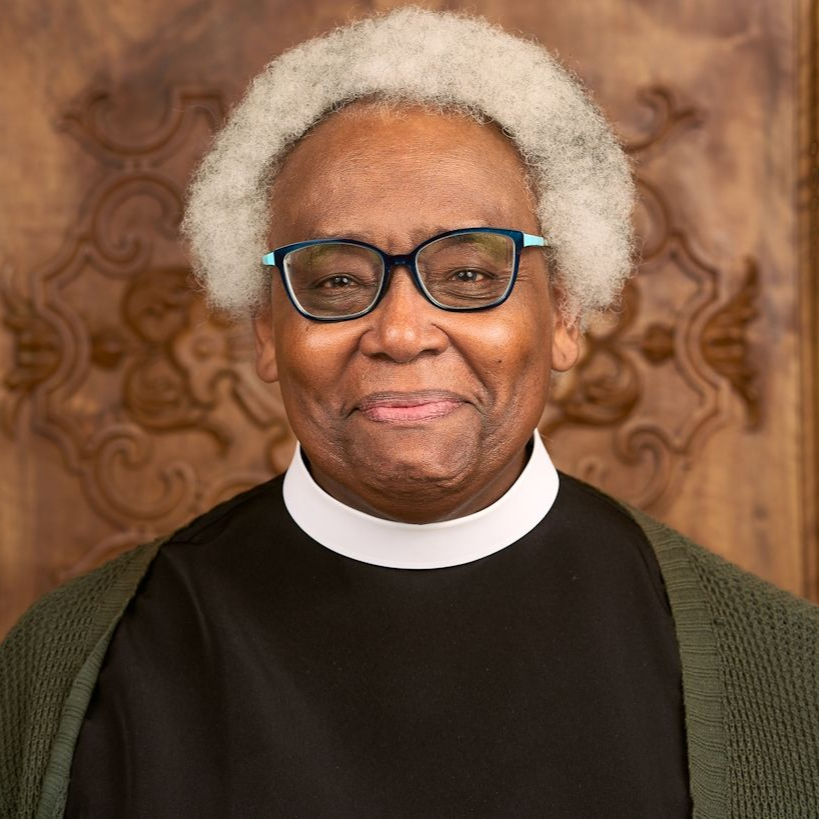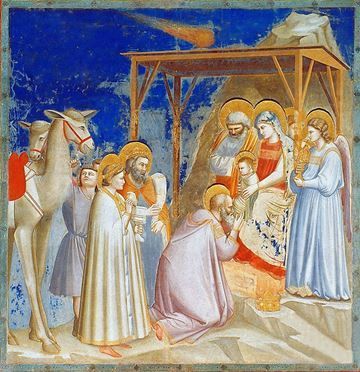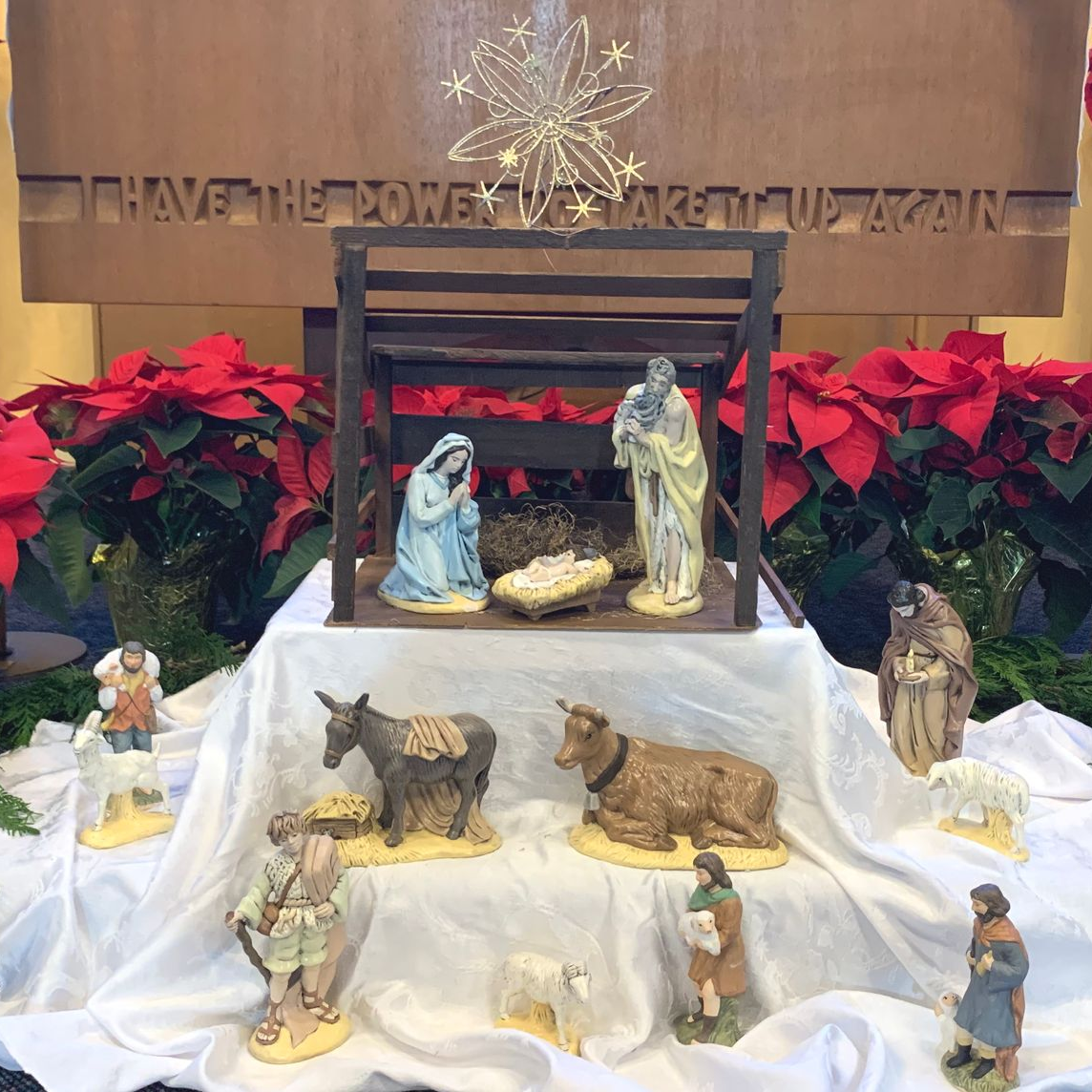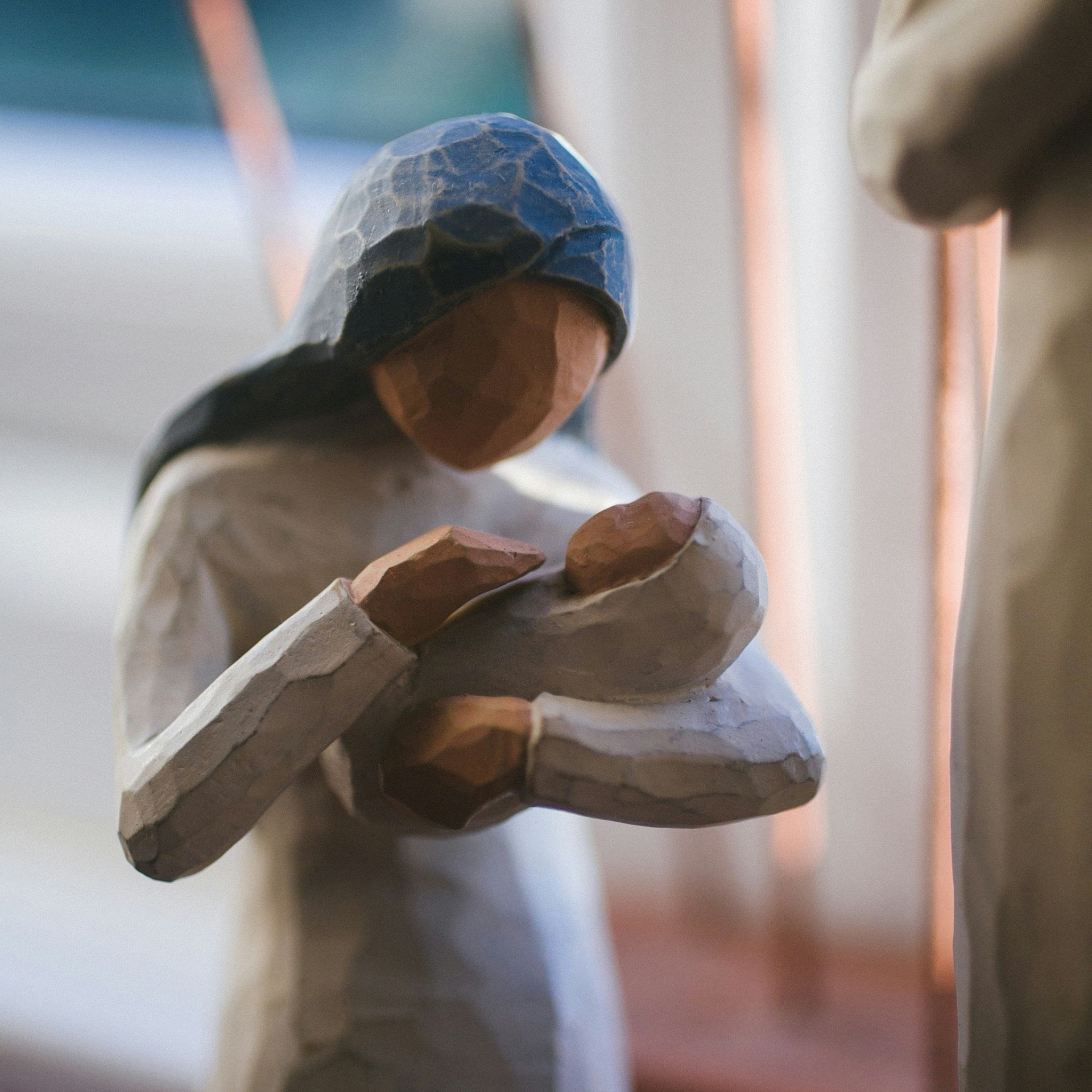Worried and Distracted
Mary sits at Jesus’ feet and listens to his teachings. This is her core work—not the endless little tasks piling up in the next room.
2025-39
sermon preached at Church of the Good Shepherd, Federal Way, WA
www.goodshepherdfw.org
by the Rev. Josh Hosler, Rector
The Sixth Sunday after Pentecost (Proper 11C-Tr1), July 20, 2025
Amos 8:1-12 ;
Psalm 52 ;
Colossians 1:15-28 ;
Luke 10:38-42
These days, it's shocking how often our readings in church hold up a mirror to the United States of America. Surely you’ve noticed, right? We don’t pick these readings ourselves; many different Christian denominations use the same three-year cycle of readings.
Two weeks ago Luke got me preaching about our need to work against the abhorrent injustices dominating our country, and last week Jesus got Anna preaching about who our neighbors really are, and now I get … Amos preaching about the rich abusing the poor? And Psalm 52, all about the wicked tyrant who loves all words that hurt, with a fervent prayer that God might demolish him utterly!
On top of that, as if to smack me upside the head for my sermon two weeks ago encouraging us to choose our work intentionally for the sake of God’s Kingdom, I get this gospel reading in which Jesus appears to take Martha down a peg for … working.
All right, Holy Spirit. What gives?!
But as I once heard the great preacher Barbara Brown Taylor say, the fire department doesn’t show up and then complain about how big the fire is. They just start putting it out, because that’s their job. So as I always do, I will now humbly submit to the Revised Common Lectionary and get on with it.
Well, Amos. Amos, Amos, Amos. Nobody likes him, so I guess I’ll be his friend. Amos comes from herding sheep and pruning trees in the southern kingdom of Judah and crosses the border into the northern kingdom of Israel to yell at them for a while. Last week, we heard Amos use a plumb line to show that Israel was crooked and needed to be straightened out. Of course, saying this made the King of Israel mad, and he said, “Look, Amos, go back to your own country and criticize them. What did we ever do to you?” And Amos said, “Hey, God made me do this! I didn’t want to!”
Well, this week, Amos is still at it. And now, as if he weren’t insufferable enough, he’s making dad jokes. The thing about the “summer fruit”? It’s a pun. In Hebrew, “summer fruit” is qayits. But the word qets means “the end.” It may even be that in the Northern Kingdom, the pronunciation of the two words was nearly identical, which would mean that Amos is making fun of their accent. “See this fruit, this qayits? Well, God now says that qets—the end—is near!”
In English, then, I’m going to riff off a play on words I found in a Bible commentary this week[1]: “Hey, Israel—it’s summertime—or summary time! Enjoy your peaches and your raspberries, because pretty soon they’ll all be eaten or spoiled, and then the story of summer will be all told, and God will give the summary. God will sum up the summer in a summary judgment against all of you wicked people! (See what I did there?)”
Worst dad joke ever.
And who are the wicked ones Amos is yelling at? They’re the people who show outward piety by observing the sabbath day of rest, all the while champing at the bit for the sabbath to be over so they can get back to making money. Lots and lots of money, because they’re falsifying the tools of their trade to cheat the poor.
They weren’t the first or the last to do this sort of thing. In our day, they gather for a National Day of Prayer, and then they vote to jack up the interest on student loans. They pile on layers and layers of bureaucracy so that even if the poor do qualify for Medicaid, they’ll never be able to jump through enough hoops to get it. They tell those working for tips that the tips won’t be taxed, but that will only be true until the next election, and most folks won’t even make enough money to qualify. And if any of the poor are immigrants—even the ones following every rule to the letter to try to live here legally—nope, not good enough. Lock them up, feed them one maggot-infested meal a day, and don’t tell any lawyers where they are!
In our day, Amos would come here from Mexico to preach to us, and then he’d be handcuffed and hauled off so fast he wouldn’t even have time to tell “la migra” where to get off. But were he allowed to keep speaking, surely most of the content of his message would be quite similar.
Can we take any consolation from the fact that the injustices in our country are nothing new? That people of faith have lived through far worse atrocities? Amos knew all about this stuff, as did the psalmist: “You tyrant, why do you boast of wickedness against the godly all day long?”
Well, we might wish to think of ourselves by comparison as “green olive trees in the house of God.” We might proudly declare that we’re more fruitful than the grifters running our government. But notice in the psalm what allows the psalmist to say, “I am a green olive tree.” It’s not because he’s more moral than everyone else. It’s because, as he puts it, “I trust in the mercy of God for ever and ever.”
I’m not out there actively persecuting the poor. But every day I participate in systems that do—systems like home ownership, a sizeable carbon footprint, and paying taxes to this government. And on a personal level, I know I sometimes lapse into fear, anxiety, and shortsightedness. So like the psalmist, I too am always in need of God’s unending mercy. I have no cause for conceit. My trust is what sets me apart—not my lack of evil deeds. Because who knows what harm I do just by having more than I need?
God’s mercy is everpresent and is ours for the taking. But to make use of it in this life, we have to focus. We have to stretch our trust. And as I say that, it sounds to me like mercy is only truly ours if we … work for it?
No, that’s not quite right either. I mean, we should work. We must work. It’s what we do every day—we work to manage our environment. Work can be a source of constructive pride, and it can inspire others also to do good work for their communities. I’m not putting down work.
But I am saying that Americans in particular have some funny notions about work. There’s a harsh value judgment that goes without saying in the United States. It suggests that if you’re going to remain alive, you should have to work for it. Are you on Medicaid? What, and you’re not working? How dare you! You don’t get to be in this world without making money for the shareholders!
How did we come to believe that nonsense?
I’m also saying something else. I’m saying that not all work looks like work.
I think this is what Jesus is telling Martha. Notice that when he calls Martha up short, he doesn’t tell her not to be busy. He tells her not to be distracted and worried. Jesus is the presence of God right in her house! Can she slow down and focus long enough even to notice? If Jesus is here, how can there be anything to worry about?
Mary gets it, and Jesus affirms her. Mary sits at Jesus’ feet and listens to his teachings. This is her core work—not the endless little tasks piling up in the next room. Martha can’t fix the broken world. She might be able to fix a delicious meal for everyone. But even as she does that, she’s grumbling about Mary and trying to fix her as well. It’s not helpful.
Now, doubtless Mary will do the dishes, right? Maybe. Maybe not. When my family throws a party, it usually takes us about three days to get the dishes caught up! Maybe Martha’s a little too worried and distracted about keeping up appearances. Or about hospitality customs. Maybe Martha takes great pride in her work and just wants Jesus to notice. But why would she need to go fishing for compliments? Jesus would rather his followers go fishing for people—for those who feel lost and alone, who need to be welcomed into joy, not just into a job in the kitchen!
Well, anytime I’m working, paid or otherwise, I need Jesus’ words of reassurance. There’s the work I do for Good Shepherd, and the work I do for the diocese, and for my community and my family and so on. Right now the work I do for my nation involves a lot of protesting, and frankly, I’m sick of it. We shouldn’t have to fight authoritarianism—not in America! But then, when there’s a fire, our job is not to complain about it. We just have to hook up the hoses and get to work.
And when I lack the knowledge or skill or strength or fortitude to put out the fire, I have to remember that none of this rests on me alone. None of this rests on you alone. So if you are worried and distracted by many things—and who isn’t these days?—the call is to STOP. Come sit down at Jesus’ feet for a while. We will not regain our focus by spinning our wheels faster. It is not our work that saves us.
It is not our work that saves us.
There is literally nothing you can do to save yourself—to make your life more worthwhile to God—to release yourself from sin or suffering—no matter how on top of things you may feel today or tomorrow. There will come a day when you’re just not on top of things anymore. And then there will come a day when you just have to let it all go.
So, like Mary and hopefully like Martha, practice letting go. Let the male disciples go foraging in the cupboards for themselves tonight! Make time every Sunday to sit at the Master’s feet and learn. Because without that kind of work, all the other work will be futile and joyless. Accept the salvation that is already yours, no matter what happens in the world. Delight in it. And then, when you must get up and do some other kind of work, go out refreshed and full of love. Amen.
[1] Shalom Paul, Amos (Minneapolis: Fortress Press, 1991), 253; cited by Thomas W. Mann in David L. Bartlett & Barbara Brown Taylor, ed., Feasting on the Word, Year C, Volume 3 (Louisville, KY: Westminster John Press, 2010), 245.



